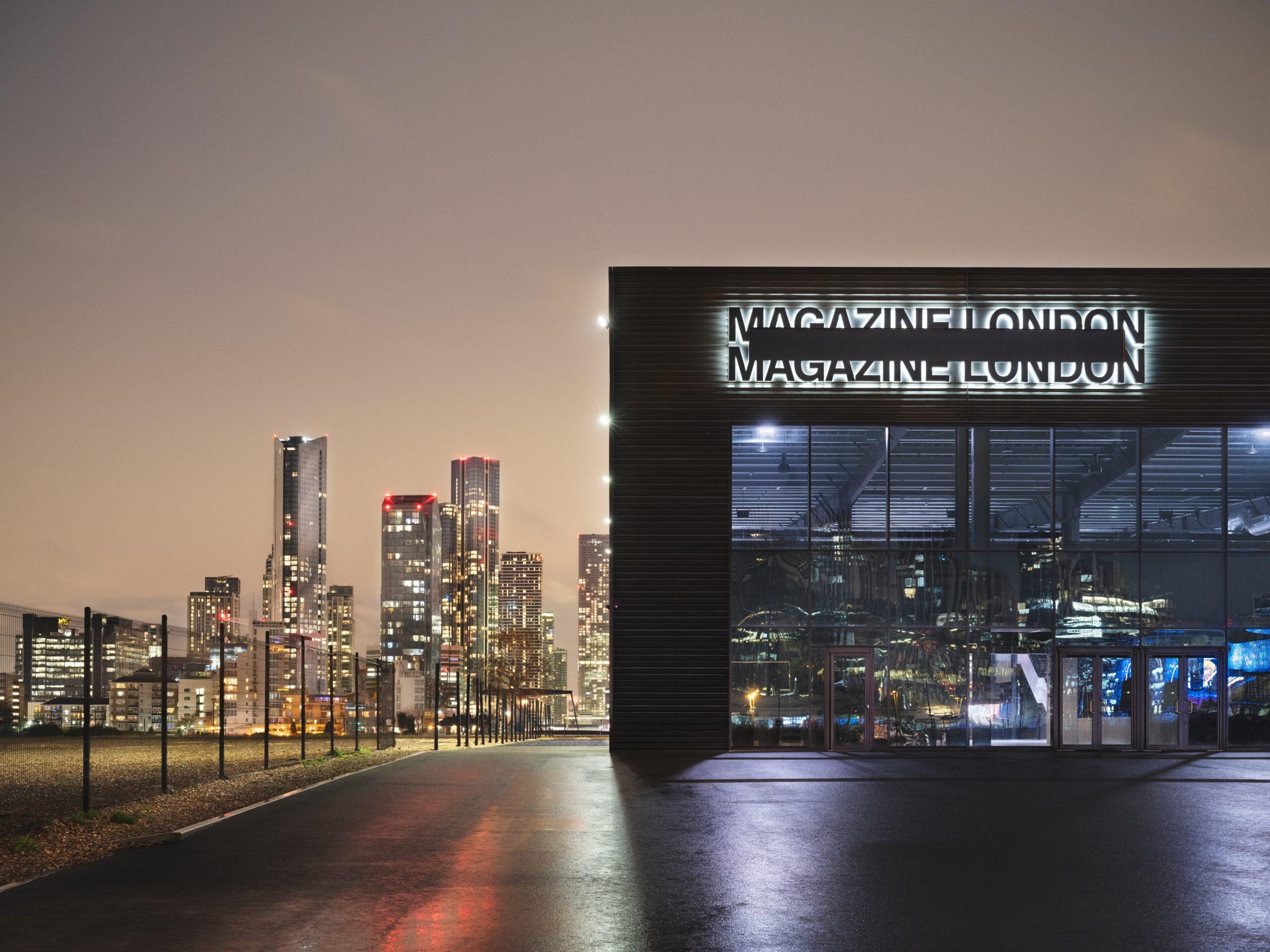In March, Soweto Kinch brought a full orchestra to Printworks to present White Juju, his artistic response to the pandemic and the culture wars, fuelled by black protest and creativity. At a time when the UK is grappling with its institutional histories of slavery and white privilege, Kinch presented a ‘tone poem’ for the modern world.
We don’t often think about orchestral music in terms of radical politics or institutional critique, but Soweto Kinch’s recent show at Printworks was just that. A one-of-a-kind performance in the vast spaces of the Press Halls, White Juju brought orchestral music to a new audience. The show was built as a ‘tone poem’, using spoken word, rap and saxophone in music influenced by jazz and hip-hop, baroque classical music and the worship melodies of the black Pentecostal church. The choice of venue was especially important for Kinch, because one of his aims was to subvert the elitist attitudes associated with classical music: This is orchestra music written for dancing.


Printworks is known as a place where music meets people at their level: it’s impressive but accessible, down-to-earth and non-hierarchical. There are no royal boxes, no tiered seating to divide the audience into income brackets. For Kinch’s performance, a stage was built at the North end of the Press Halls, bringing the orchestra up onto the same level as Kinch. The performance was a multisensory, immersive presentation, using the lighting rigs and installations of the venue to heighten the urgency and emotion of Kinch’s message. As he spoke about the state of our Country in the aftermath of 2020, the audience saw a series of images: George Floyd’s funeral, riots in our cities and police brutality.
Kinch first worked with the London Symphony Orchestra in 2019 on a project called The Black Peril, but it was the events of the following year that brought them back together. During the lockdowns of 2020, the protests against structural racism and intensifying culture wars they brought, Kinch started pulling thoughts together. The words came before the music, in memoir and essays collected under the hashtag #blackperil. He visited places in the UK that had seen protests and rioting in 2019 and 2020, commemorating the events by bringing musicians and dancers to work directly with those communities.
‘2020 was a year in which it became impossible to deny the supranational and systemic nature of racism. I wanted to capture how it felt at the time, before the distorting lenses of memory and shame could be applied’.
As an artist, Kinch saw his role as a creator: to compose a story that would last beyond the black squares of Instagram, to instil the black experience as cultural histories are built. As an activist, he was an organiser, and brought together artists and musicians to collaborate through conversation and art. The performance at Printworks was just one part of this project. Conducted by Lee Reynolds, it was the largest outing of the piece to date, with the full LSO in support in addition to a jazz quintet. The event was a testament to Kinch’s ability to communicate truths through music, and an opportunity to reconsider the limitations of classical music.







